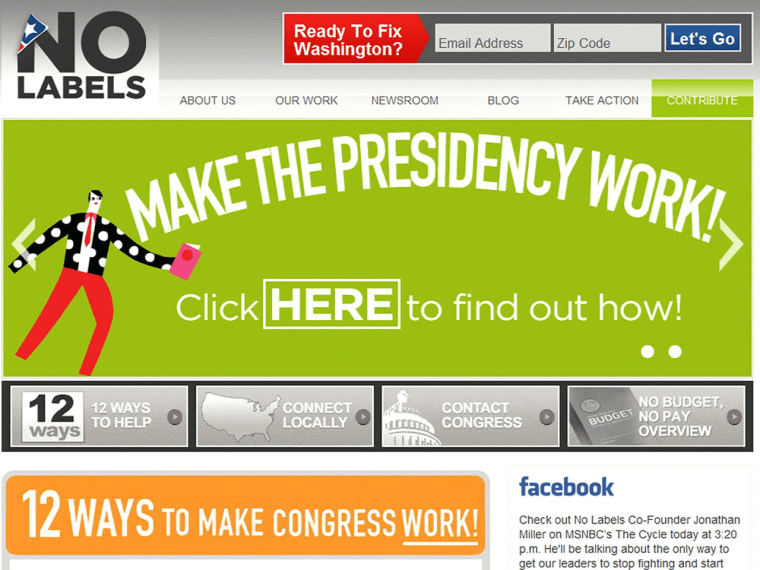These days, it seems that one of the few things our nation can agree on is how divided we are. But one man is trying to fix Washington.
Jonathan Miller is the co-founder of NoLabels.org, an organization that stresses the need for solutions to national problems over partisan political games. Miller says “we need to be problem solving instead of hyper-partisan finger pointing.” And he’s not alone. The Cycle's Krystal Ball, for instance, ran for office in Virginia because she wanted to make a positive difference, not only for the people she would represent, but for the country as a whole. Now, Toure and S.E. could argue all day about if it was the country’s loss or The Cycle’s gain that Krystal lost that election, but the essential point is that there are people out there who want to see partisanship take a back seat.
You don’t need me to tell you that we have real problems plaguing our nation--including, but not limited to, the fiscal cliff. Neither candidate has talked about it during the course of this election (which is a problem in and of itself), but it is one of the most glaring examples of partisanship preventing lawmakers from creating solutions that will help the people who elected them.
No Labels tries to stop the fighting and start the fixing with a few “How To” style suggestions. For instance, in a section of their site titled “12 Ways to Make Congress Work,” they suggest that if Congress can’t pass a budget on time, representatives should not get paid. They also recommend that a televised fiscal report be delivered annually to Congress by a nonpartisan leader so that everyone can agree to work off of the same set of facts for that year. Or my favorite: bipartisan seating, where at all joint meetings, each member should be seated next to at least one member of the other party. It kind of reminds me of boy-girl-boy-girl order during the cootie-ridden days of elementary school. The only difference is that by the time a representative hits Capitol Hill, they are not only up to date on their cootie-shots, but cootie-theories have been generally debunked.
NoLabels' ideas could work. But Steve Kornacki had a different take. While in the past there was a history of bipartisanship and “funky coalitions” that would emerge around specific issues, he said, the modern political system has shifted away from that to a system where ideology is synced up with party identity, leading to “day to day polarization.”
Kornacki continued:
It seems to me that the more valuable message to be sent to people is not to bemoan that these two parties aren’t working together, but the message to people should be to identify which party represents their interests, their principles, and their values, and then to work within that party to make their values the priority of that party, and to get that party in power so that something can actually be done. That,to me, is the healthy approach to politics in this era.
Is there one way to fix our partisan political system? Probably not. But there are a few, and at least we’re beginning to float some out there.
